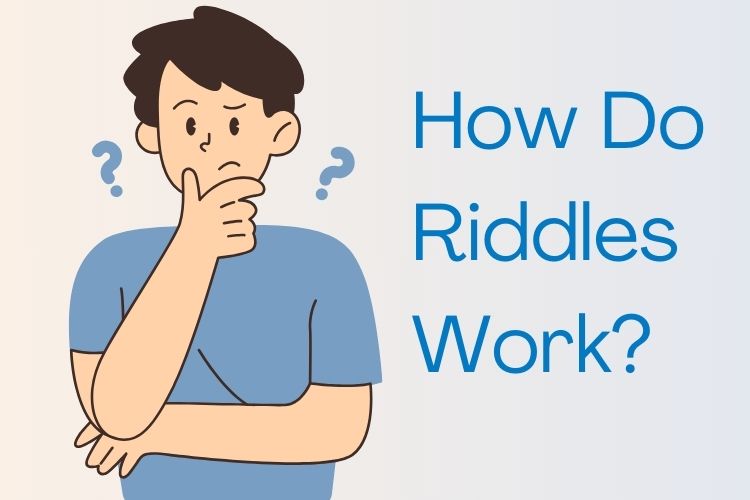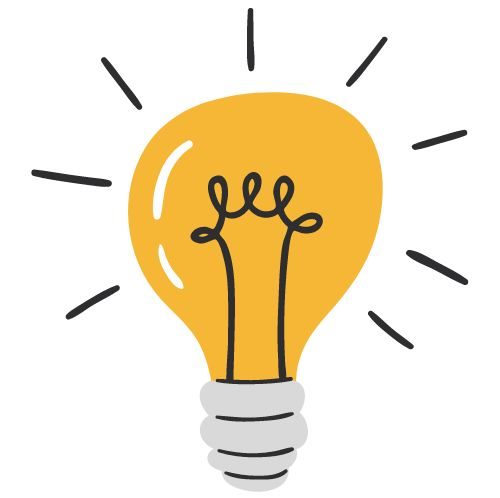It’s always a good idea to give your brain a great workout—and what better way to do so than with the best and the trickiest riddles?

Riddles are clever brain teasers that come in various forms. They can be short or long, simple or sophisticated, straightforward or cryptic, and are good for kids and adults alike.
However, one thing all riddles have in common is that they all work in a similar way. By asking a puzzling question, and challenging you to think out of the box!
Before you crack some of the craziest riddles out there, you need to understand how they work. Lucky for you, this guide is here to help you out, so keep reading before you start riddling!
What is a Riddle? Definition and Parts
A riddle is a question, statement, or short story with a silly, unexpected, or hidden meaning. It’s a way of playing with words, and the goal is to find a clever answer that fits the given clues.
Most riddles have two basic components: a question that requires critical thinking and creativity and an acceptable answer. They can be oral or written in form, with some as short as a phrase and others as long as a paragraph. There are also rhyming riddles that resemble poetry!
Common Types of Riddles
To understand how riddles work, it’s important to be familiar with the two main types of riddles, enigmas and conundrums. Let’s look at enigmas first.
1. Enigma
An enigma is a type of riddle that uses allegorical or metaphorical language. To find the solution, you’ll need to think carefully and use your imagination! Here are some examples:
I have a tail and a body, but I am not a snake. What am I?
A coin
They have not flesh, nor feathers, nor scales, nor bone. Yet they have fingers and thumbs of their own. What are they?
Gloves
I am the Earth’s soft sigh, heard but not seen; carrying leaves and whispers, my presence is serene. What am I?
Wind

2. Conundrum
A conundrum is a type of riddle that relies on the use of puns and wordplay to achieve its desired effect. Here are a few examples:
What is black and white and ‘red’ all over?
A newspaper
Why didn’t the lost hikers starve in the desert?
Because of the “sand which” is there.
What kind of tree can you carry in your hand?
A palm tree
Misdirection in Riddles
Many riddles work by using a trick called misdirection. Its purpose is to make readers and riddle-solvers pay attention to the wrong thing so they won’t notice the true, hidden solution to the riddle. It also creates distractions that intentionally lead you away from the right answer.
Also known as a “red herring,” misdirection is used in jokes as well because it makes the punchline a surprise, eliciting laughter from the audience. Similarly, you may find yourself giggling at misdirection in riddles, with silly twists and unexpected answers, such as:
First, think of the color of the clouds. Next, think of the color of snow. Now, think of the color of a bright full moon. Now answer quickly—what do cows drink?
Water
A rooster lands on top of a house on the exact peak of the roof, which faces east and west. It lays an egg, which way does the egg roll?
Roosters don’t lay eggs!
Tips on Solving Tricky Riddles
Can’t solve a riddle and want to get better? These tips will boost your riddle-solving ability:
- Reread or relisten to the riddle carefully. Pay attention to special, repeated, or unusual words or phrases, and look carefully for double or hidden meanings.
- Break the riddle into smaller parts and try to identify recurring patterns.
- Think logically, but also consider symbolic interpretations and other perspectives.
- List possible answers then use the process of elimination to narrow them down.
- Brainstorm with others and challenge yourself to think out of the box.
- Enjoy the process, and practice, practice, practice!

A Riddle a Day Keeps the Boredom Away
Congratulations! Now you know how riddles work, and it’s time to make your mind work by solving a few. Don’t be afraid to stretch those mental muscles, riddles are good for you!
For your daily dose of mind-boggling riddles and the best brain teasers, visit Tease Your Brain, a special place where curious minds come together to sharpen their wits. Whether you’re a riddle solver, a puzzle enthusiast, or a lover of optical illusions, everyone is welcome here!
